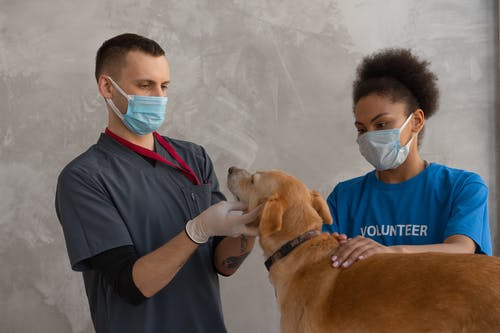It’s exciting when a new fur member is embraced into a household. However, this joyous moment could be a nightmare for many new pet owners. Parvovirus is very frequent in pups and adolescent dogs, especially the unvaccinated ones. This infection can turn healthy, bushy-tailed, and energetic puppies extremely ill and even result in death when not treated immediately.
Given that it’s a frequent occurrence in canines, preventing it from occurring should be the most prioritized concern of pet parents. Now, let’s understand how to secure your dog from the virus.
How to Protect Your Canine From Parvo
Parvo is a highly contagious and lethal virus that can lead to serious gastrointestinal diseases in young dogs when overlooked. Another alarming thing about the infection is its level of contagiousness and how it can spread in a population of pets. Doing preventative measures to prevent this infection is better than handling it once it infects your canine. Here are five basic pointers you can follow to keep your dog healthy and away from parvovirus.
1. Keep your house clean
Although parvovirus is not air-borne, it may still live on surface areas and might be challenging to clear away. Deep cleaning your house with a solution of bleach is the best efficient method as normal soaps and disinfectants can’t eliminate the virus.
2. Deworm your dog
Unvaccinated pups and those with intestinal worms have feeble immune systems. Worms can bring numerous unanticipated health issues and put them at greater threat of contracting parvo due to their weakened immune system. By preventing worms in your canines, you are shielding them from the virus and health conditions that might be caused by it.
Ask your veterinarian for the most effective heartworm medicines for your dog’s breed to secure them from intestinal worms. Additionally, bringing your dogs or puppies to veterinarians for routine exams and up-to-date pet vaccinations in Knightdale, NC is always crucial to maintain their well-being and know what disorders disturb their health.
3. Visit your veterinarian
Immediately bringing your canine to a vet upon suspicion that they have parvovirus is vital. The infection can kill a dog within 24-48 hours of contraction. So if your pet gets immediate care quicker, the greater chances they can overcome the disease. Some symptoms of parvo you should keep an eye out for are a loss of appetite, lethargy, diarrhea, and vomiting.
Seeing a dog internal medicine specialist is a reliable rule of thumb if you believe your pet suffers from parvovirus. Aggressive therapies are frequently warranted to ensure infectious conditions like parvo are treated efficiently.
4. Limit your dog’s exposure to other dogs
Fully vaccinated dogs are immune to parvo, but they can still be carriers of the virus, putting unvaccinated puppies in danger. If your canine is not fully vaccinated, avoid taking them outside if not needed. Wait for your furry companion to get fully vaccinated before allowing them to play outdoors with their doggy buddies to minimize their chances of having the virus.
Reducing your dog’s exposure to their fellows will keep them from unforeseen fights and accidents, leading to injuries or internal bleeding that may need vet surgeons’ attention. If you’re looking for nearby pet surgery professionals, you may search the web for “dog surgeons near me” to see specific results.
5. Vaccinate your puppy
Having your dog vaccinated can help protect them from parvovirus. Canine parvo vaccination needs to be administered for pups at around 6-8 weeks of age. This includes boosters every three weeks when sixteen weeks of age and boosters every three years.
Your canine will have immunity to the virus after the first 3 initial vaccinations. Afterward, routine annual boosters still need to be administered to ensure your pets maintain their resistance.






